Find an area that sparks your passion

Explore the areas of study available to you across the wide range of engineering disciplines. With over 20 study areas and even more disciplines you can choose from Aerospace, Biomedical, Renewable Energy and Food Technology to name a few.
Each study area offers a variety of courses, programs, undergraduate and postgraduate degrees, and research opportunities. It's up to you to decide which one is right for your needs.

Biomedical Engineering
Sitting at the intersection of technology and human biology, Biomedical Engineering applies the latest developments in computing, robots and nanotechnology to the field of medicine.

Bioinformatics Engineering
Bioinformatics combines computer science, big data and life science to provide better solutions to experts working with and managing huge volumes of genetic information.
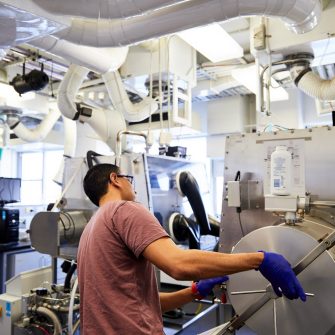
Chemical Engineering
Chemical Engineering is essential for many things, like health technology advancements, clean water and climate change processes. Chemical Product Engineering is about understanding product function and performance, and how people use those products.

Civil, Structural & Surveying
Civil engineers work with every element of modern infrastructure. Structural engineering ensures structures are safe, durable, attractive and economical. Surveying supports all construction activity and infrastructure engineering in urban and rural environments. These three types of engineers often work closely and in overlapping capacities.
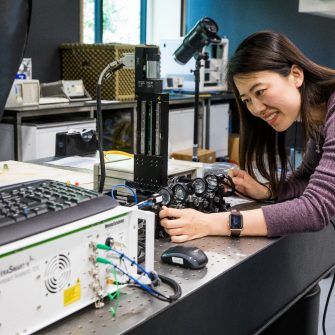
Computer Engineering
Computer Engineers design and develop computer systems as well as the hardware elements. It’s how we maintain our vast networks of computer technology and are able to develop new, efficient technologies like smart watches and smart phones that fold or bend.

Computer Science & Software Engineering
Computer Science and Software Engineering is one of our most popular study areas. You’ll focus on computing and mathematics design and techniques, giving you the fundamentals to specialise in your area of choice.

Cyber Security
Cyber security is the practice of protecting systems, networks and data from digital attacks. It involves implementing measures to prevent unauthorised access, data breaches and other threats to information security. Cyber security professionals design secure infrastructures, analyse vulnerabilities and respond to incidents – all while navigating the legal and ethical challenges that accompany data protection.

Data Science
Data Science is a multidisciplinary field of study that blends mathematical methods, statistics, computing, business decisions and communication. Data Science untangles the complex, interwoven webs of data using advanced technical and mathematical skills to deliver actionable insights for organisations.
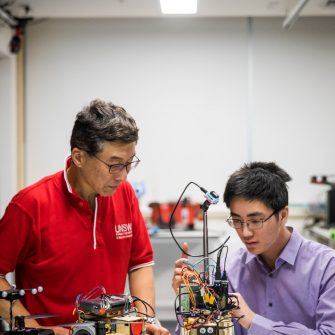
Electrical Engineering
Electrical Engineers create, design and manage electricity to help power the world, looking at problems, physical phenomena and techniques of technological innovations. Electricity is essential to areas like health technology and climate change technology.

Environment & Sustainability
Environment and Sustainability Engineering is the type of engineering that seeks to undo past damage to the planet and work with the natural environment to create a better future for humanity and the places we inhabit.
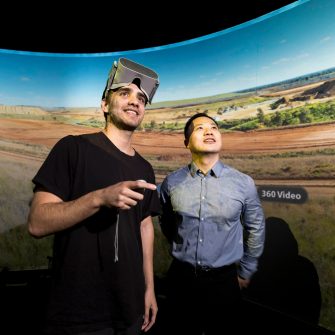
Flexible Engineering
With so many exciting and innovative areas of engineering to choose from, it can be difficult to decide which area of engineering is right for you and your career aspirations. The Flexible First Year gives you the opportunity to explore the broad range of engineering specialisations on offer at UNSW before settling on a discipline that is right for you
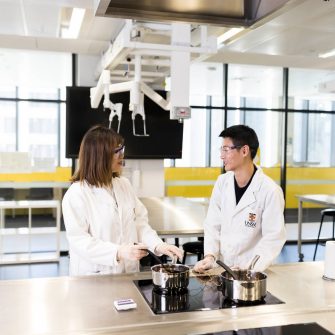
Food Science & Technology
Combining chemical, biological and physical sciences, Food Scientists are the innovators of all things edible, from creating new products and flavours to learning how to process foods to reduce food and energy waste.

Humanitarian Engineering
Humanitarian Engineering connects people and problems, addressing disadvantaged communities and societies around the world. Be at the forefront of improving lives and livelihoods with this multidisciplinary field of engineering.

Materials Science & Engineering
Everything in the world is made of materials. However, only a small number of these materials occur naturally, with the rest having been microscopically engineered by nature or, increasingly, by materials scientists and engineers. The field of materials science and engineering plays a vital role in our lives, offering innovative new materials and processes for improving society in the 21st century.
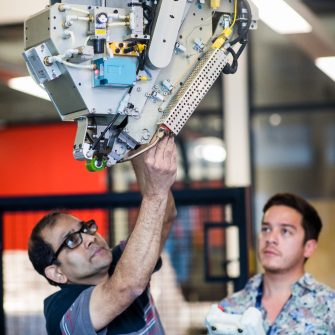
Mechanical & Manufacturing Engineering
Mechanical and Advanced Manufacturing Engineering are intertwined at all points in the process. Everything we use on a daily basis is mechanically engineered, and at one time manufactured. Mechanical and Manufacturing Engineers are vital for our future. You’ll apply scientific and engineering knowledge to machine-building in your studies.
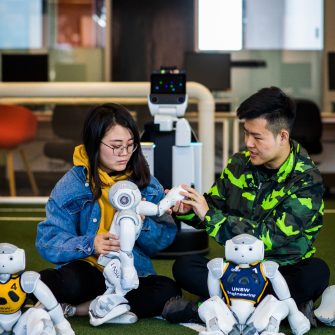
Robotics and Mechatronics Engineering
In the age of smart machines, gain the specialised knowledge needed to create smarter innovative machines that increase human capability across a variety of industries, including health and manufacturing.

Nuclear Engineering
When you work in Nuclear Engineering you’ll examine and leverage nuclear concepts which form the foundation of our universe. These concepts can be applied to a number of industries today and are helping create the technologies of the future.

Project Management
Project Management in Engineering is a stream of Project Management focussing solely on engineering projects. This area of study is designed for those with an engineering background who want to move into project management.

Quantum Engineering
Quantum Engineering combines the broad skills of engineering with fundamental physics to solve contemporary problems and engineer solutions for the future.

Renewable Energy Engineering
Renewable Energy Engineers explore ways to make the best use of renewable energy technologies like solar, wind, biomass, smart grids and photovoltaics, which is the use and manufacture of solar cells to power virtually anything electrical.

Resources, Energy & Geostorage
Engineers have unique skills to identify natural resources that can be used in various ways to meet the needs of society. Mining resources helps us generate a range of energy sources, including renewable energy by virtue of providing critical minerals. Utilizing geological structures for storing or producing fluids and gases allows us to permanently store CO2 emissions or seasonal hydrogen and produce natural gas as well as geothermal energy. You’ll gain a valuable skill set for the immediate and future needs of the industry during and after the energy transition.

Space & Aerospace Engineering
Space and Aerospace Engineering involves design, manufacture, operations and development of flight vehicles and their systems. You’ll have the choice to focus your study on the mechanical or electrical aspect of the field.

Telecommunications Engineering
How do we communicate information at a distance? How can you video call someone in another country? The answer: Telecommunications Engineering. Telecommunication Engineers design, build and manage systems that transmit these data signals to keep information flowing.
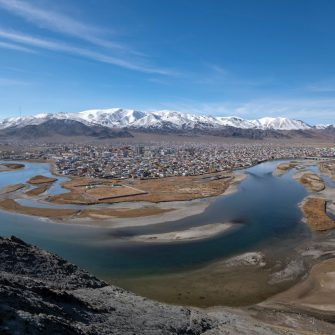
Water, Geotechnical & Transport
This area of engineering has a heavy bearing on society, the natural environment and daily life. You’ll work to ensure reliable, safe and effective resources for humans whilst protecting the planet.
